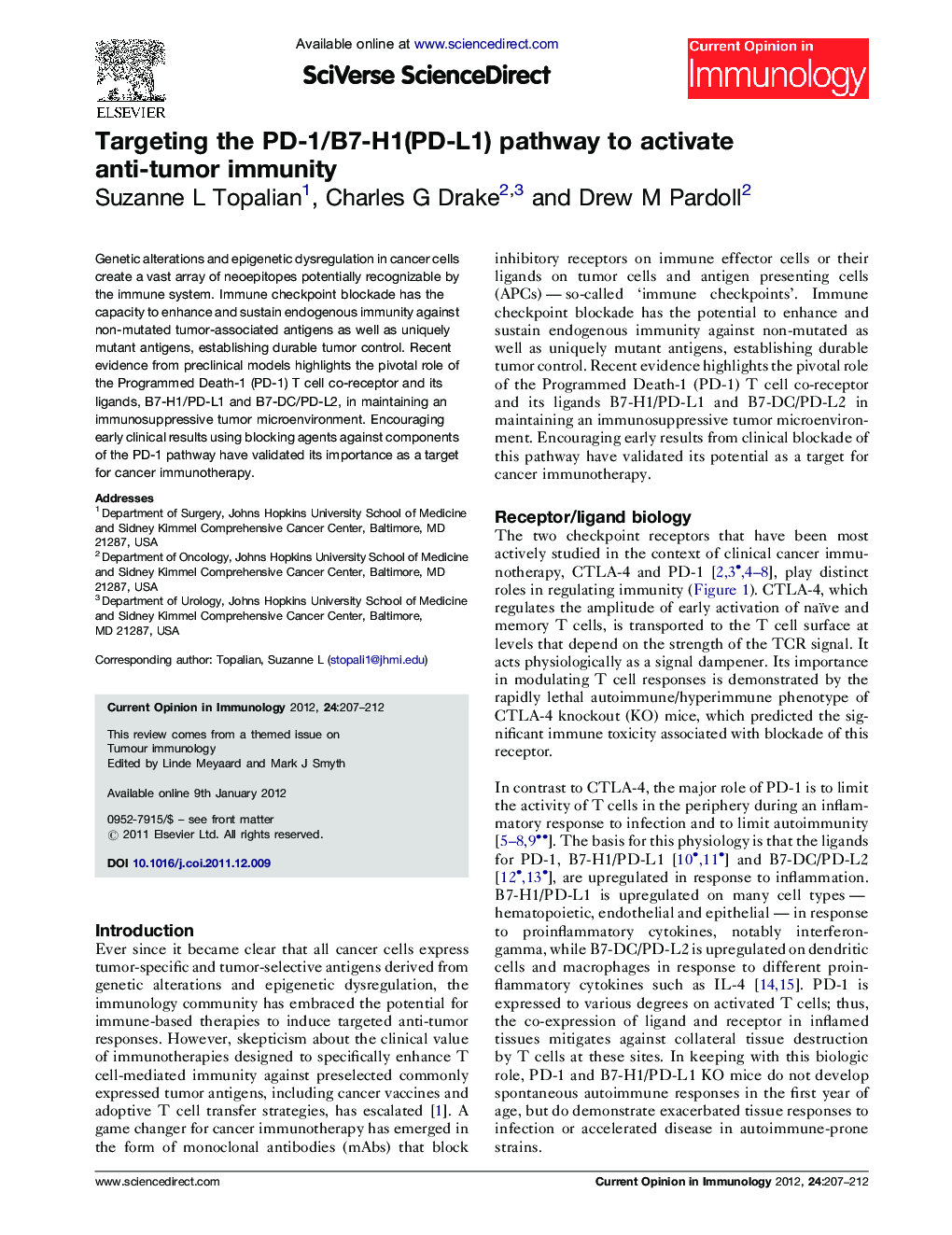| کد مقاله | کد نشریه | سال انتشار | مقاله انگلیسی | نسخه تمام متن |
|---|---|---|---|---|
| 3346169 | 1215773 | 2012 | 6 صفحه PDF | دانلود رایگان |

Genetic alterations and epigenetic dysregulation in cancer cells create a vast array of neoepitopes potentially recognizable by the immune system. Immune checkpoint blockade has the capacity to enhance and sustain endogenous immunity against non-mutated tumor-associated antigens as well as uniquely mutant antigens, establishing durable tumor control. Recent evidence from preclinical models highlights the pivotal role of the Programmed Death-1 (PD-1) T cell co-receptor and its ligands, B7-H1/PD-L1 and B7-DC/PD-L2, in maintaining an immunosuppressive tumor microenvironment. Encouraging early clinical results using blocking agents against components of the PD-1 pathway have validated its importance as a target for cancer immunotherapy.
► PD-1/B7-H1 are pivotal in maintaining an immunosuppressive tumor microenvironment.
► PD-1 and CTLA-4 play distinct roles in regulating immunity.
► B7-H1 upregulation on tumor cells likely reflects ‘adaptive resistance’.
► PD-1 blockade is active against NSCLC, thought to be a ‘non-immunogenic’ tumor.
► Monotherapies blocking PD-1 may be more effective in combinatorial regimens.
Journal: Current Opinion in Immunology - Volume 24, Issue 2, April 2012, Pages 207–212